Spelling Skills Alphabet Worksheets for 5-Year-Olds
6 filtered results
-
From - To
Engage your 5-year-old with our Spelling Skills Alphabet Worksheets, designed to make learning fun and effective! Tailored for young learners, these worksheets provide a hands-on approach to mastering the alphabet while enhancing spelling skills. Featuring colorful and interactive activities, children can practice letter recognition, phonetics, and simple word formation. Each worksheet supports early literacy development, promoting both creativity and cognitive growth. Our resources aim to instill confidence in young readers and writers through playful learning experiences. Watch your child's spelling skills flourish as they explore the fascinating world of letters and words—providing a solid foundation for lifelong learning!
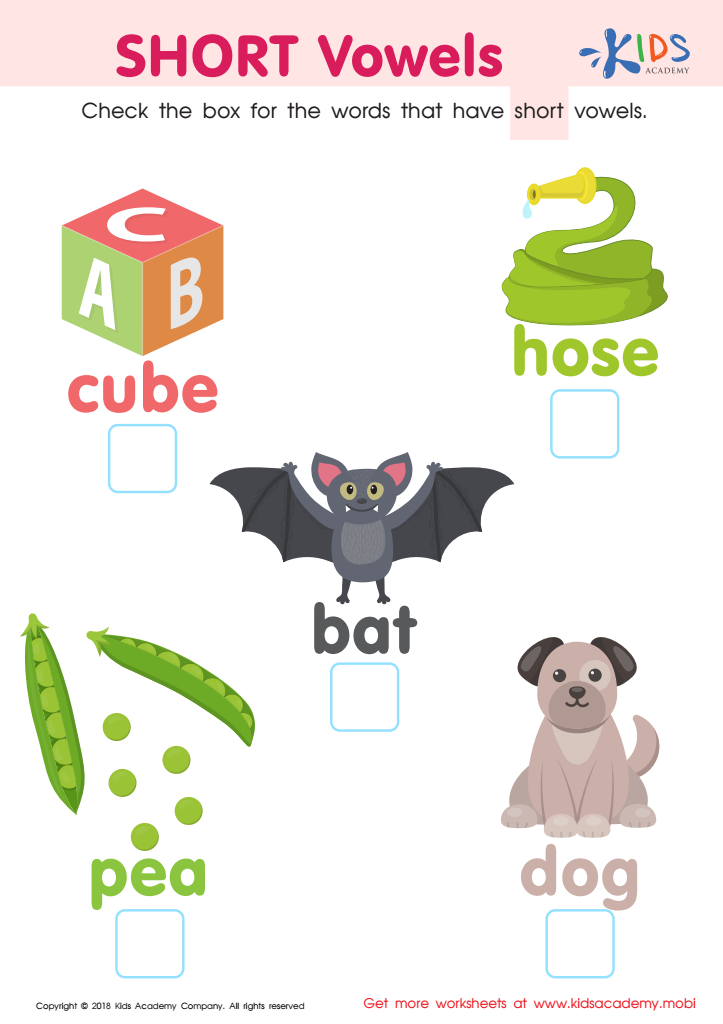

short vowels Worksheet
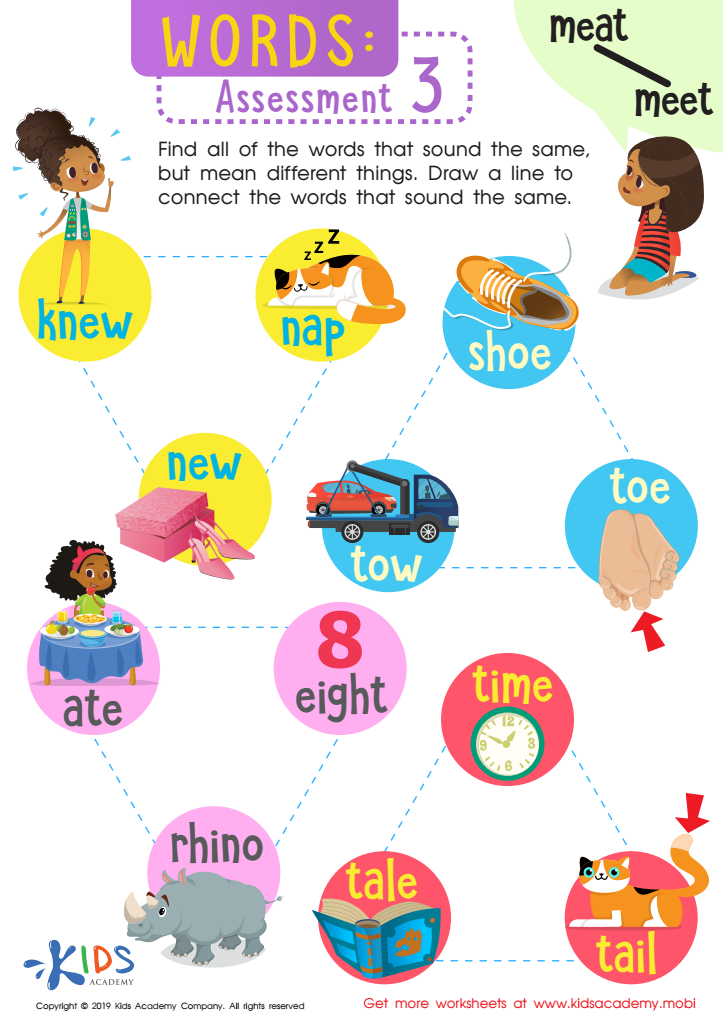

Words: Asessment 3 Worksheet
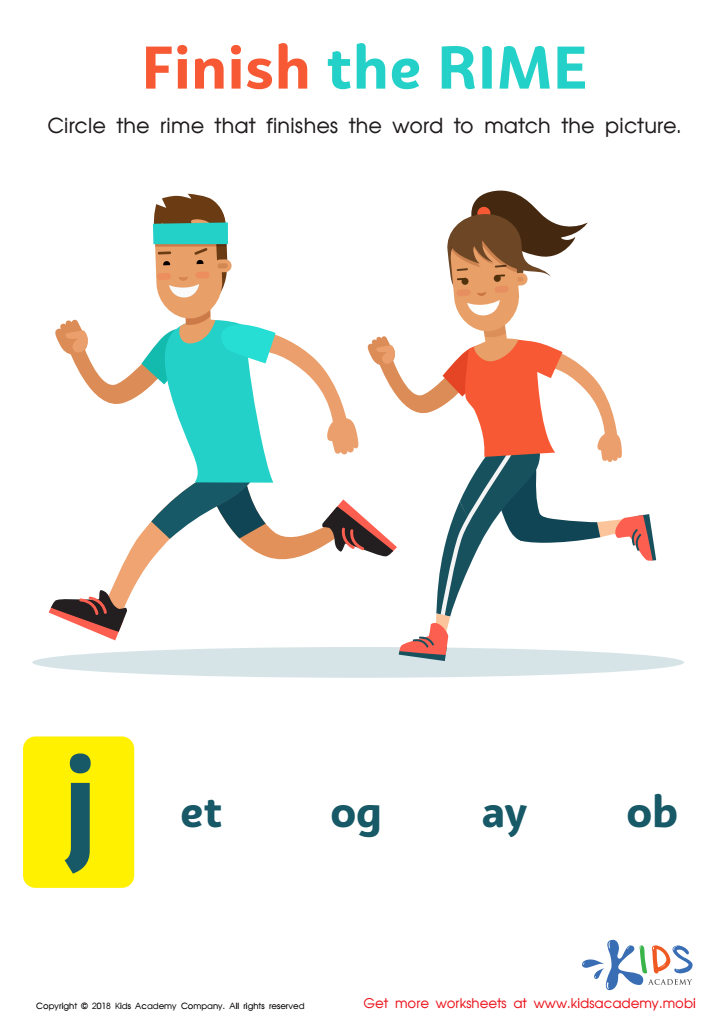

Finish the Rime Worksheet


Words with sound f Reading Worksheet
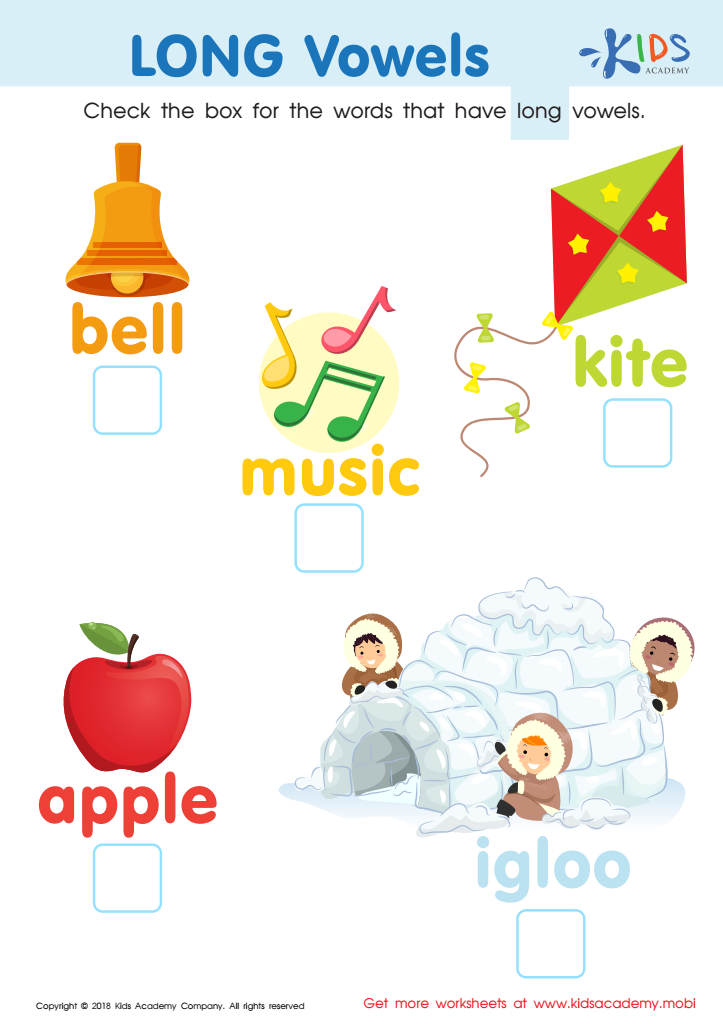

long vowels Worksheet
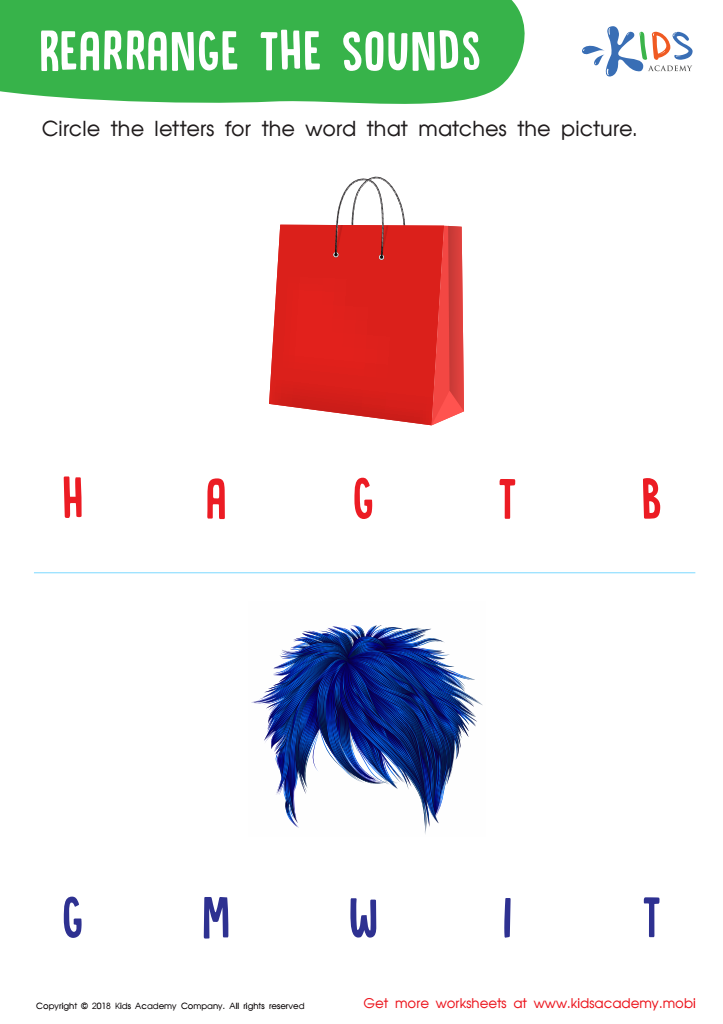

Rearrange the Sounds Worksheet
Spelling skills are an essential building block for early literacy development in 5-year-olds. At this age, children begin to explore the relationship between sounds and letters, which is crucial for their reading and writing abilities. Understanding the Spelling Skills Alphabet helps children recognize and grasp phonetic concepts, leading to more effective spelling and reading practices down the line.
Parents and teachers should care about these skills because they lay the groundwork for overall communication. Mastering basic spelling fosters confidence in young learners, encouraging them to express themselves more freely in writing. Additionally, strong spelling abilities contribute to vocabulary expansion and improve comprehension skills as children encounter new words in their reading material.
Moreover, learning about spelling at this stage supports critical thinking and problem-solving abilities. Children learn to decode words, recognize patterns, and make connections, which are vital skills as they progress academically. Encouraging spelling skills can make language arts an enjoyable subject, prompting a lifelong love for learning.
Ultimately, a focus on spelling in early education can bridge gaps when children transition to more complex language tasks, building a solid foundation for success in reading and writing throughout their academic journey.
 Assign to My Students
Assign to My Students



















